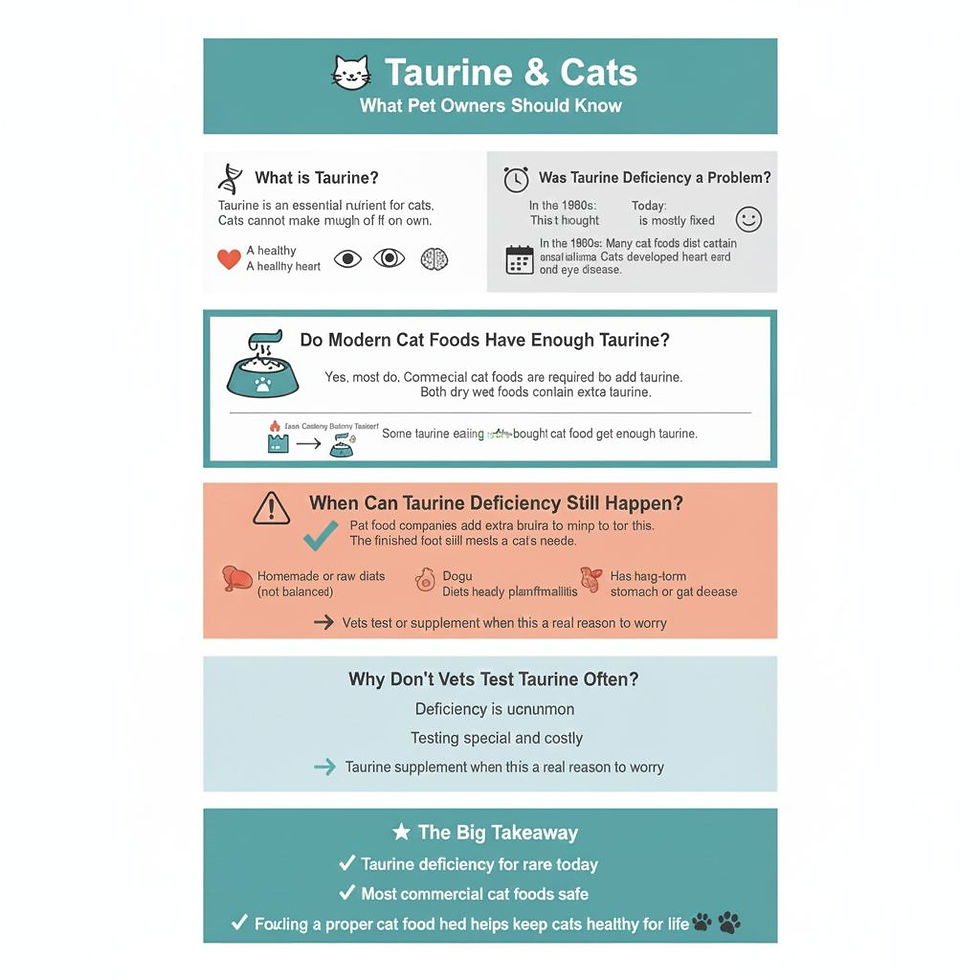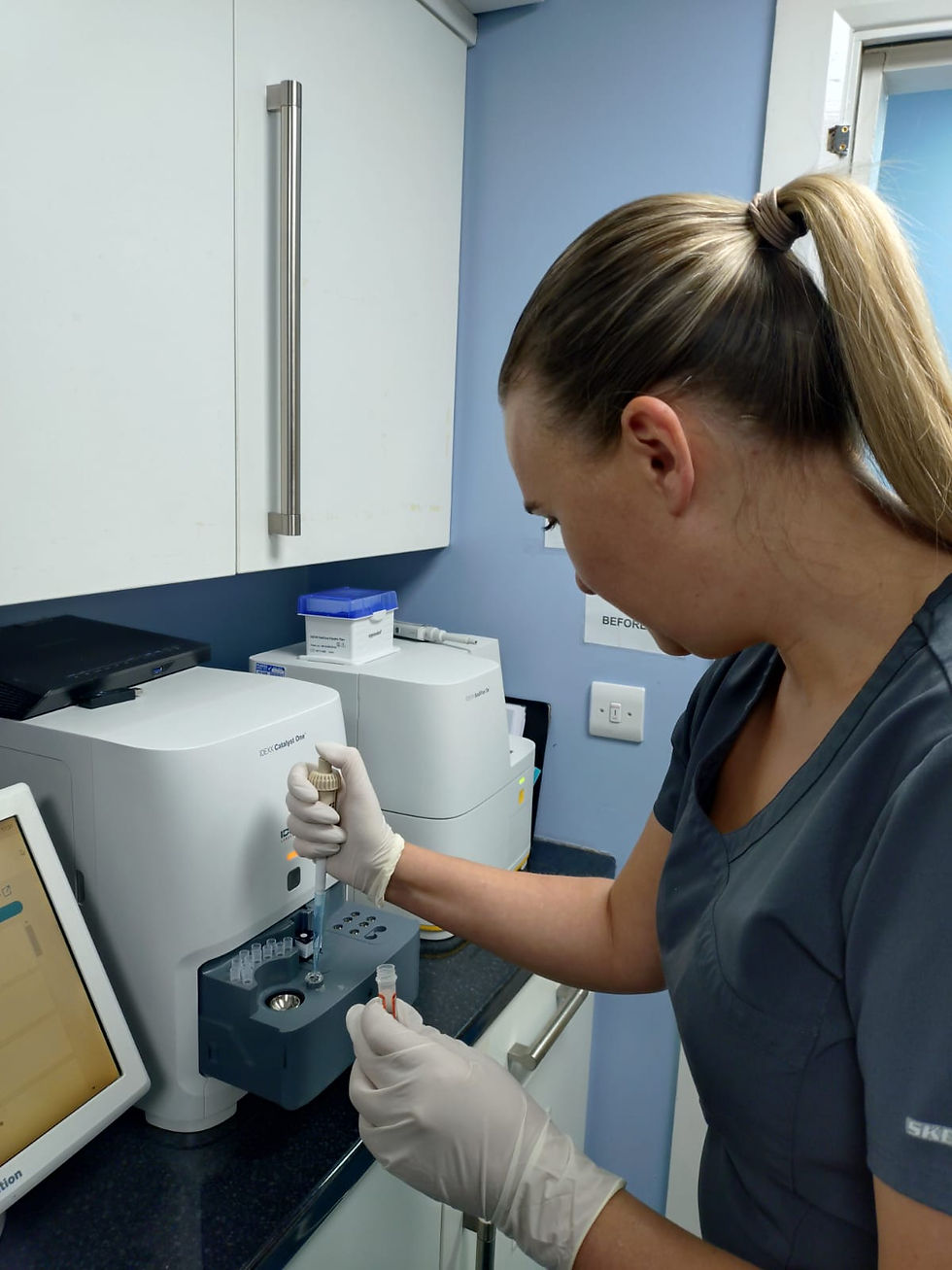Parasite Awareness
- carolinepallister
- Aug 9, 2021
- 3 min read
In your cat’s lifetime they will come into contact with several different species of parasites. We would like to raise your awareness of the most common ones and what action to take to protect your cat.
Which parasite would I be most likely to notice on my cat?
Most commonly fleas... as adults these little nuisances spend a lot of their time on your cat. They can live up to two years and the females can start laying eggs within 2 days of finding a host. Flea eggs fall into your cat’s environment along with “flea dirt” (flea excrement) After hatching, the flea larvae use dead skin tissue as a source of food.

My indoor-only cat will be free from fleas... won’t it?
Don’t be fooled... even if your cat is strictly indoors with no outdoor access, it is wrong to assume that they are fully safeguarded from an infestation. Fleas are cunning and find devious ways to muscle in on the “family.” They hitchhike on items such as footwear, clothing and bags until they reach their food source (our feline friends.)
Are there many other parasites to watch out for?
Other common parasites are Roundworm and Tapeworm... they are located in your cat’s intestines. Occasionally you may come across mites and lice but these tend to be less common.
Can you recommend a parasitic treatment regime?
A lot of the parasite control you come across in the veterinary world is either topical (liquid) or oral (tablet). Their sole purpose is to treat your cat by infecting the parasite with a toxic dose of preventative medicine. This is achieved by the parasite ingesting dead skin/hair cells found in your small furnishings or through biting your pet whilst having a feed and absorption through their gastrointestinal tract.
We recommend you treat your cat against fleas/mites/lice/worms... the frequency is interchangeable depending on your cat's lifestyle choices and the medication selected, but they tend to vary on average between 4-12 weeks This is as a result of the drug datasheets.
The future of parasitic control in our patients
At SimplyCats we always want to provide the best for the cats registered under our care... we are always on the quest for different practising techniques that represent our uniqueness and veterinary talents, whilst still maintaining a high standard of care and dedication to our profession. So, with that in mind, we would like to introduce you to our NEW state-of-the-art laboratory equipment... enabling us to check for the commonly found worms and Giardiasis/Giardia cysts (this is a stomach bug caused by tiny parasites).

We are hoping to change the way we provide parasitic treatment to be more appropriate to the animal as an individual. Why would you treat your cat if they weren’t at risk...right? Well, we strongly agree! This is why we are specifically interested in pursuing new methods for worming control.
A tale of two kitties
Let's consider for a minute, two cats from two different households that live completely polar opposite lifestyles.
Cat A (Alfred) is an indoor cat, who doesn’t hunt, sleeps all day, occasionally gets up for a bite to eat and a drink then regimentally paces from his bed to the window to look at the world in general (keep this scenario in your head - whilst we meet our next cat).
Cat B (Frank) a cat who is an avid mouser/ratter is forever bringing little food hampers home... much to the annoyance of his owners. He is a true representation of a “jack the lad,” where he is out first thing in the morning and stumbling back “drunk” on euphoria, in his opinion, he is living the “best life!”
Have you noticed the obvious fault yet…? Alfred is more conservative and adopts anything for a quiet life, whereas Frank is very much his own boss and does what he likes. So, the question is... does Alfred need regular worming? He isn’t going out and he is not hunting, so he's potentially lower risk. It’s certainly food for thought!
We are extremely lucky at SimplyCats that all parasite preventions can be tailored specifically to your cat's lifestyle. We have a microscope that can check your cats poo for worm eggs to ascertain the correct treatment frequency relevant to your cat... we could argue that if there was no evidence of worm eggs at the time of sampling, are we correct to provide the worming treatment?
To find out more please contact the practice on 0191 385 9696, and don’t forget to follow us on Instagram and Facebook for more interesting topics.

Why not browse our updated website? Click here for further details on our unique indoor and outdoor cat health care plans. You could start spreading the cost of your remedial treatment today!






Comments